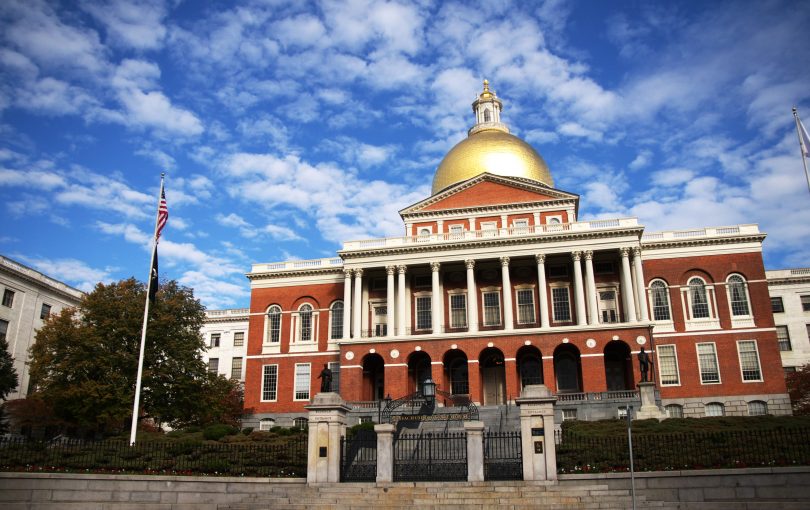By Brianna McKinley
BU News Service
BOSTON — As proposals for global warming legislation gain traction on a national level, several Massachusetts officials have emerged as key players in the conversation.
Sen. Edward Markey has joined Rep. Alexandria Ocasio-Cortez, D-N.Y., in announcing the Green New Deal, a sweeping policy bill that aims to drastically reduce carbon emissions in multiple sectors of the economy while also creating clean energy jobs.
Markey, who has made environmental issues a signature component of his career while representing Massachusetts in the U.S. House and Senate, called climate change “the most important issue facing this country” at recent a press conference in Washington.
Larry Stoodt, a member of the legislative team of the MetroWest node of 350 Massachusetts for a Better Future, a climate activist group, said a Green New Deal in Massachusetts is still in the development phase. But he commended Framingham’s three state reps — Maria Robinson, Jack Lewis and Carmine Gentile — for endorsing bills the group asked them to co-sponsor.
350 Massachusetts for a Better Future discussed how a state-level Green New Deal could lead to an equitable transition to clean energy during a recent meeting held in Wayland. Stoodt agrees Massachusetts was previously a leader in climate change policy, but believes it has since been surpassed by other states.
“We continue to deal with this as if it’s our children’s problem, and it’s not,” he said.
The conversation comes on the heels of a widely publicized report from the UN Intergovernmental Panel on Climate Change released late last year. Findings indicated that if the current greenhouse gas emissions trends continue, the Earth will warm by 2.7 degrees Fahrenheit by 2040, likely resulting in extreme weather, food scarcity and climate-related poverty. These effects were previously only thought to occur if the temperature rose by 3.6 degrees Fahrenheit.”
Historically, the commonwealth has been progressive on climate change. In 2008, Massachusetts became one of the first states to establish a long-term requirement to reduce carbon emissions by at least 80 percent below 1990 levels by 2050. In 2016, the Massachusetts Department of Environmental Projection issued a report detailing that greenhouse gas emissions in Massachusetts had decreased by 21 percent from 1990 to 2016.
Although the Green New Deal has some support in the U.S. House, the majority of Democrats and Republicans in Washington suspect it won’t pass, due in part to House Speaker Nancy Pelosi’s wariness as well as other components in the bill, including universal health care and job guarantees.
In Massachusetts, Gov. Charlie Baker emphasized the environment in his fiscal 2019 budget proposal, which included a 50 percent fee increase on real estate transfers to allocate funding to mitigate the effects of climate change in cities and towns. And Baker was one of two governors who testified before the U.S. House Natural Resources Committee hearing in Washington earlier this month.
In his remarks, Baker highlighted the Municipal Vulnerability Preparedness Program, of which Framingham, Marlborough, Sudbury, and Wayland are a part. The program uses state grant money to understand how to prepare for the effects of climate change that are unique to each town.
Baker also addressed how the warmer temperatures can influence diseases transmitted by mosquitoes and ticks, since the insects will have a longer life span if there are fewer colder days in the year.
In Framingham, an influx of Lyme disease and West Nile virus has made the city vulnerable to flooding in overdeveloped suburban areas, according to Marianne Iarossi, a senior planner in the Division of Community and Economic Development, who oversees the $44,500 given to the city through the MVP program.
Iarossi is encouraged the state is taking an active role in climate change mitigation.
“The fact that the state and the governor are making it a priority and they’re providing funding is an eye-opener,” she said. “Planning is important, but implementation is where you’re going to see actual change happening. They are working collaboratively and effectively with the local communities on this.”
This story was previously published in the MetroWest Daily News.





